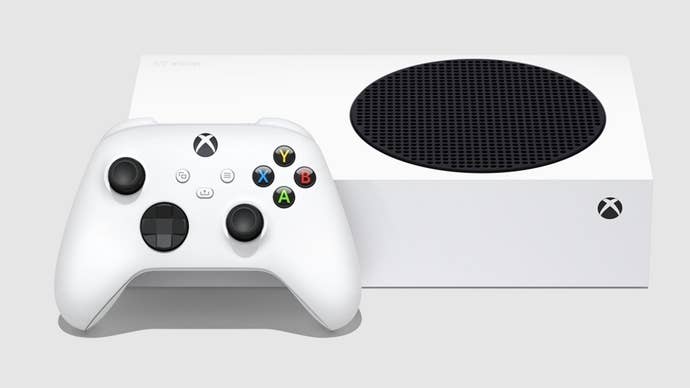Xbox Series S isn’t holding next-gen back, reality is
Devs will always have to cater for the lowest common denominator, which the Series S isn’t.
^Stay tuned for Jim’s video op-ed on how good the Series S really is.
There’s a pernicious rumour going around that the humble Xbox Series S, the cheapest next-gen console on the market, is somehow causing other, better machines to be compromised with unnecessary framerate caps. Quite how the rumour started is a little convoluted, but I’ve explained all in the accompanying video. And, look, here’s the thing: it’s a load of rubbish.
If anything, if the Series S was responsible for reducing the overall complexity of next-gen games compared to what they could achieve were it not a factor, then the big boy machines – it stands to reason – would have plenty of headroom left over for performance boosts. But that’s not what’s happening.

It certainly isn’t happening in the case of Gotham Knights, which kicked off this whole ridiculous mini-controversy by launching without any performance modes despite being next-gen exclusive. This is due, we’re told, to the complexity of the game… which was originally slated for PS4 and Xbox One, but those versions were cancelled, and the game we got feels decidedly last gen and can barely maintain a stable framerate regardless. Go figure.
The Series S is a next-gen machine in all the ways that count: specifically, its super-fast NVME storage and robust CPU, both of which are basically identical to its bigger brother, and on a par with the PS5 in terms of raw numbers. It has a less impressive GPU and not as much RAM, but this is a compromise aimed at getting the price as low as possible with the concession that this machine is intended to be used with last-generation television screens and 1440p monitors. It’s not supposed to compete with premium consoles and three-grand PCs, it’s supposed to be cheap, cheerful, and “good enough” for your average user. Which it is.

It also represents a significant step up in terms of the base spec of gaming hardware that people tend to have in their homes, namely the base PS4, a workhorse machine which is still going strong due to various factors (as explored in the above video) but is hamstrung by a slow HDD and a lacklustre CPU: both of these are drag factors which the next gen machines, including the Series S, are designed to negate.
With millions of users still, for whatever reason, unable or unwilling to upgrade from the last-gen machine or low spec PC they’re currently rocking (not to mention machines like the Nintendo Switch and Steam Deck), it seems churlish to blame the Series S for dragging down the minimum spec that studios have to cater for when, if anything, it would appear to be pushing up the average.
Some developers feel all the same that Microsoft’s requirement to support the Series S with every Xbox release – preventing them from splitting the userbase – is cramping their style. But if they’re that determined to artificially cut their market in half, there’s nothing stopping them from making their games exclusive to other platforms.
That’s capitalism, baby. The freedom to choose!

